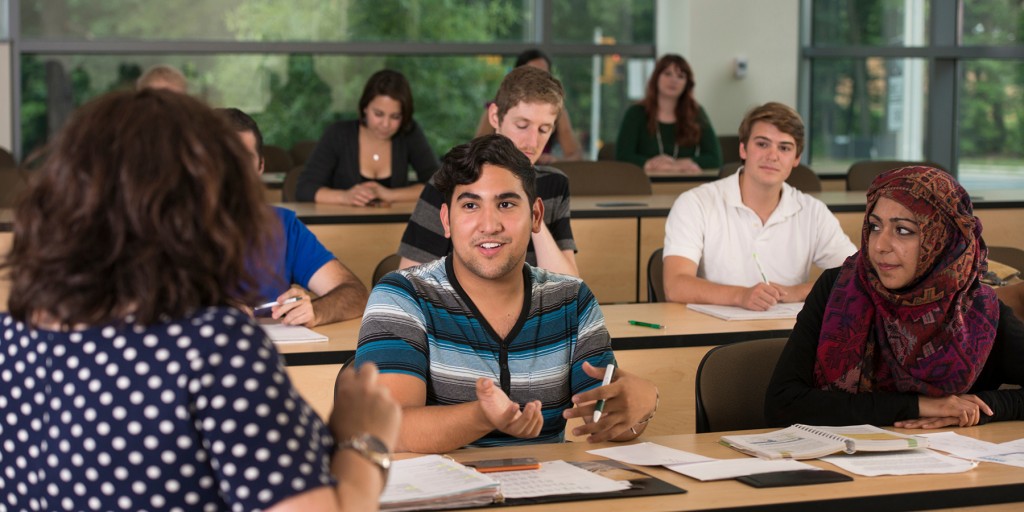As your student prepares for the first semester of college, or the last, we want to share some tips for creating good academic habits! The study strategies needed in college are much different from the ones needed in high school. In high school, most teachers break down the course material for students, provide homework assignments to help students practice what they are learning, and administer frequent tests to assess student learning. In college, our professors empower students to take responsibility their own learning. Students can take charge of their learning by following the four phases of the Study Cycle.
Phase 1: The first phase is to encourage your student to preview the material to be covered in class, before class. The professor will provide students with a syllabus which will include information about the course learning objectives, class expectations, assignments, and grading, as well as a course schedule that lists the course topic, reading assignments, homework deadlines, and exams for each week. Students can start the semester strong by reviewing this information early.
Phase 2: The second phase is to attend class. Class attendance may not be required or monitored, but your student should still go to class, take notes, and participate in discussions. Electronic devices should be silenced and put away to reduce distractions. Professors will often explain complicated concepts, clarify upcoming assignments, and facilitate group activities during class. Students who skip class will miss out on important information.
Phase 3: Phase three is to encourage your student to review notes as soon as possible after class. This is important because the material is still fresh in your student’s mind allowing him or her to fill in any gaps, write out abbreviations, and flag any information that can be confusing. It is important to review notes regularly because there are fewer tests in college and they cover many chapters. If your student waits 4-5 weeks to review their notes before a test, they will have forgotten most of the information.
Phase 4: The final phase is to use intense study sessions. In college, your student will be expected to “recall” the best answers. Self-testing is the most effective strategy to prepare for college exams because it provides an accurate assessment of recall. When re-reading, students tend to think that they remember the material because it looks familiar, but by quizzing themselves, your student will have a better gauge of information learned. There are a number of ways your student can self-test including using flash cards, completing end of the chapter questions, recalling the main points of a lecture, and completing problem sets.
The study cycle is a weekly cycle. If students keep up with the reading, attend class regularly, review their notes, and study the material each week, preparation for exams will be manageable.
If your student needs assistance with any of these strategies, Learning Services can help. We offer academic skills workshops, one-on-one peer academic coaching, and academic skills videos. Check out our website for more information.
Vicki Dominick
Associate Director for Learning Services
Counseling and Psychological Services

